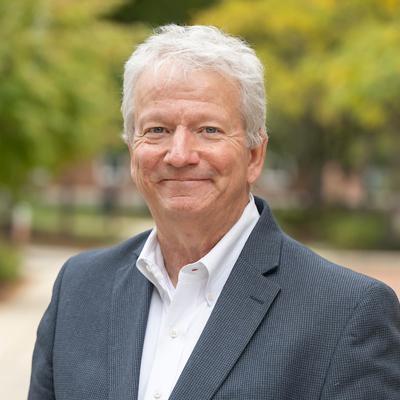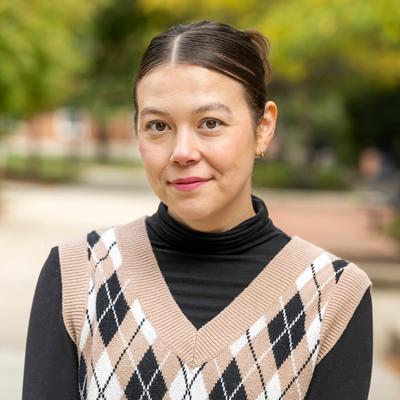Data Justice
Information, analytics and computing for social change
Introduction
Data Justice (DJ) provides students an opportunity to interrogate the biases that are built into information collection, design, and analysis. Students explore how specific values are coded into datasets, algorithms, AI-driven systems, machine learning models, and other sociotechnical systems. They gain advanced data-related skills that will serve them in a wide variety of careers that aim to make the world a better place through information.
By the conclusion of the program, students will be able to:
- Employ justice-centered approaches to equitable computer and data sciences;
- Analyze how cultural values, power, and privilege are encoded into technologies;
- Critique the sociopolitical values of data structure and algorithmic design;
- Analyze ways that computing and data science have been used as a catalyst for positive social change; and
- Develop a computing identity that intersects with personal identity factors.
DJ Scholars enters its second academic year in 2025-26. The program is sponsored by the University of Maryland’s College of Information, a top-ranked research and teaching college in the field of information science.
In the College of Information, faculty, staff, students, and partners are expanding the frontiers of how information and technology are accessed and used in a rapidly evolving world. We are combining principles of information science with cutting-edge technology to foster access to information, improve information interfaces, and expand how information is used in an evolving world.
Throughout all of our endeavors, the College of Information is committed to utilizing information and technology for good – to connect communities, empower individuals, and create opportunities.
Colloquium and Lecture Topics
- How do you use information?
- What is the info you need to change the world?
- What has produced the digital divide?
- How are digital identities different from personal identities?
- How can we achieve information justice?
The Data Justice program will be an excellent opportunity for undergraduate students interested in information science, computer science, the social sciences, journalism, business, policy, and more.
Other Learning Opportunities
In addition to colloquium and supporting courses, DJ students will choose three 1-credit electives from a group of courses focused on building technical computing and data science skills. Course titles include:
- Making Twitter Bots
- Solving Puzzles and Riddles with Computation
- Comic Books and Machine Learning
- Emergent Experiences through Technology
Off-campus excursions to information-related sites, such as the Library of Congress, the National Archives, and the Agricultural Library in Beltsville, MD, will foster community and encourage examination of information in the community (in physical location, cyberspace, and institutions created for the management and best use of information).
Curriculum Overview
Data Justice is an 15-credit program that includes a required course on algorithmic bias (INST204S); a series of colloquium courses on the topics of the digital divide, digital identities, and information justice; a set of supporting courses drawn from the College of Information’s 100- and 200-level courses on relevant current issues; a set of short supporting courses focused on technical computing and data science skills; and a practicum (CPDJ240 Service Learning) in which students will undertake a project with a community partner related to data justice.
The following table represents a typical two-year curriculum, but individual schedules will vary. Details about courses and requirements can be found on the Data Justice Citation Checklist.
| SEMESTER | COURSE | CREDITS |
|---|---|---|
| Semester 1 | CPDJ 100: Colloquium I | 1 credit |
| INST204S: Designing Fair Systems (DSHS, SCIS) | 3 credits | |
| Semester 2 | CPDJ 101: Colloquium II | 1 credit |
| Semester 3 | CPDJ 200: Colloquium III | 1 credit |
| Semester 1, 2, 3, or 4 | INST 388: Maker Movement INST 388: Maker Movement INST 388: Maker Movement |
1 credit 1 credit 1 credit |
| Semester 1, 2, 3, or 4 | Supporting Course (var. Gen Ed) | 3 credits |
| Semester 4 | CPDJ 240: Service-Learning Practicum | 3 credits |
Sponsoring College
Office Address
1101 Centreville
Office Phone
TBD
Faculty


News and Notes, Etc.
New Feller Research Professor to Advance Research on Activism by Marginalized Youths
Stacy Kosko, an Associate Research Professor in the Department of Government and Politics (GVPT) and the Director of the College Park Scholars International Studies program, has been named the next Joel J. Feller Research Professor—an award that has supported professional track faculty in GVPT since 2015.
'Cheese' The Day
The following article originally appeared in Maryland Today: As a kid, Kara McGrath ’13 had to have her “pocket cheese”—string cheese she shoved, at her mother’s dismay, into every jacket and pant so she could have it on the go. In college, she blew her budget on fancy fromage during grocery runs with roommates. And when she got married in 2018, she served her guests a flowery, four-tiered cake made not from red velvet or buttercream, but wheels of Manchego, blue cheese and Harbison.
Invasive plants threating DC parks
University of Maryland students partnered up with Montgomery Parks staff and volunteers for an important day of pulling weeds.
Fall 2023’s Fresh Faces
This class of 4,750 new Terps includes a unique group of artists, athletes, scientists and entrepreneurs prepared to leave their unique mark on campus in and out of the classroom. Meet nine members of the incoming freshman class, including an Arts Scholar, excited to bring their skills and passions to campus.
Ready to Roll
The following article originally appeared in Maryland Today: Mid-Atlantic mugginess was no match for Fall Welcome 2023. Undeterred by sticky shirts, the heft of overstuffed suitcases and the complex science of properly loading a dolly, more than 9,600 Terps moved into residence halls from Thursday through Sunday with patience and eagerness. A variety of University of Maryland offices and units then drew them out of their new rooms with a weekend packed with games, Do Good activities, giveaways and other gatherings, all aimed at acclimating them to campus—and each other—before the semester officially starts on Monday.
Fossil hunting gains interest after major discovery
Searching for dinosaur bones has always been an interesting assignment for students in Thomas R. Holtz’s classes. But after the recent discovery of more than 100 dinosaur fossils, the exercise is now a little like prospecting for gold where it’s just been found.


